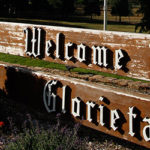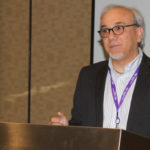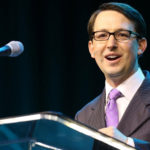WACO—Throughout their history, Baptists have uniformly revered the Bible but passionately disagreed about what it means, historian Bill Leonard told an audience at Baylor University’s Truett Theological Seminary.
Baptists’ earliest statements of faith proclaimed their affirmation of Scripture, reported Leonard, dean of Wake Forest University’s Divinity School.
The London Confession, published in 1644, stated: “The rule of this knowledge, faith and obedience … is not man’s inventions, opinions, devices, laws, constitutions or traditions unwritten whatsoever, but only the word of God contained in canonical Scriptures.”
The Orthodox Creed, affirmed in 1679, declared biblical authority does not rely upon “authority of any man, but only upon the authority of God.”
|
Bill Leonard
|
“Early Baptists recognized the complexity of reading, using and understanding biblical content, while insisting even the ‘unlearned’ could comprehend the text’s most basic instruction,” Leonard said.
But Baptists “often painted themselves into assorted theological and cultural corners” when their avowed loyalty to biblical authority clashed with “piety and practice, culture and conflict,” he added.
“When such theological and cultural dilemmas inevitably occur, many Baptists adapt, even change, their theology while clinging to the rhetoric of an uncompromised biblicism,” Leonard said. “And, being Baptists, when such differences occur, they often split, creating new communities gathered around diverse interpretations of pivotal texts.”
That has been true from the beginning, he said, reminding, “Baptists are really the only post-Reformation Protestant community to begin with two contradictory theological perspectives, one Arminian, the other Calvinist.” Arminians champion human free will, while Calvinists emphasize God’s sovereignty.
So, since the 17th century, Baptists have occupied “both ends of the … theological spectrum,” he said.
Sign up for our weekly edition and get all our headlines in your inbox on Thursdays
Evangelical inclusion
A century later, Baptist missions pioneers William Carey and Andrew Fuller “stretched popular theology to the breaking point” by promoting what Leonard called “evangelical inclusion.” They emphasized the biblical mandate to take the gospel to the “heathen” around the world, while other Baptists vehemently disagreed, believing God could save the “elect” without human involvement.
In time, the advocates of missions carried the day for most Baptists, a victory that redefined their understanding of God’s plan for salvation.
A century after that, Baptists struggled with accommodating their theology to culture, Leonard added. The primary issue was slavery, and both sides claimed the Bible supported their position. And Baptist slaves cited numerous biblical references to support their cry for liberation.
In the last century, the question of accommodation to Scripture and/or culture focused on the role of women in Baptist churches, and particularly ordination, Leonard said. As with previous divisions, Baptists with polar-opposite positions each claimed to have the Bible on their side.
Even more recently, Baptists have debated the use of alcohol and the practice of personal piety, Leonard said. And as before, they all cited the Bibl
Dangerous necessity
All these debates illustrate the fact biblical interpretation and application “is neither a simple nor primarily an academic pursuit,” he stressed. “It is a dangerous necessity undertaken implicitly or explicitly by every Baptist congregation and individual. (It) sent Baptists to jail and to the mission field (and) to the slave auctions. Interpreting the text is terribly dangerous then and now.”
The Baptist debates over the centuries also show “no theory of biblical inspiration or analysis is adequate to make ‘all things in Scripture’ ‘plain in themselves’ or ‘clear to all,’” he said. “Theories about the text cannot protect Baptists—or anyone else—from the power and unpredictability of the text itself.”
Baptists’ penchant for interpreting the Bible in their own light has produced both negative and positive consequences, Leonard observed.
“From their earliest days, Baptists developed a theological and ecclesial system that creates certain ‘Baptist ways’ for negotiating the hard sayings of the biblical text,” he said. “That system often carried Baptists into ‘cultural captivity,’ but also inspired prophetic, dissenting responses grounded in the power of individual and communal conscience.”
Based on Baptists’ 400-year track record, Leonard concluded with a question: “What issues are Baptists currently claiming with biblical … certainty that they will be compelled to apologize for in a century or two? …
“You see, the Bible may say it, and Baptists may believe it, but—historically speaking—that does not always settle it.”















We seek to connect God’s story and God’s people around the world. To learn more about God’s story, click here.
Send comments and feedback to Eric Black, our editor. For comments to be published, please specify “letter to the editor.” Maximum length for publication is 300 words.